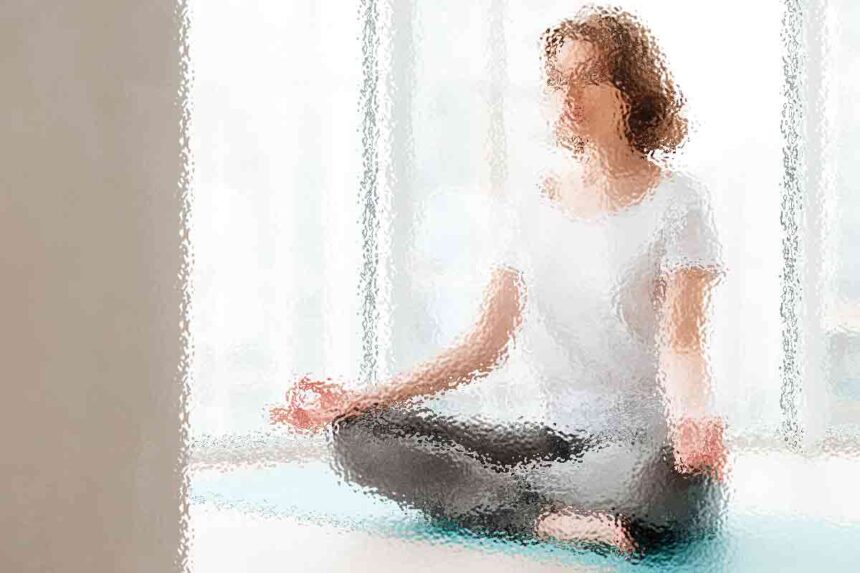In the realm of sports performance enhancement, there exists a practice that transcends mere physical training: yoga. This ancient discipline, originating from the Indian subcontinent, has gained widespread recognition for its multifaceted benefits, ranging from flexibility and strength to mental clarity and focus. In this comprehensive guide, we delve into the profound ways in which yoga can elevate your athletic prowess and optimize your performance on the field, court, or track.
Flexibility: The Foundation of Athleticism
Flexibility is not merely a desirable trait for athletes; it is the cornerstone of optimal performance. Through a regular yoga practice, individuals can significantly enhance their flexibility, thereby improving their range of motion and reducing the risk of injury. The various yoga asanas (poses) target different muscle groups, promoting both lengthening and strengthening, which are crucial for athletes across all disciplines.
Strength and Stability: Balancing the Body
In addition to flexibility, yoga cultivates strength and stability in ways that conventional strength training cannot replicate. Many yoga poses require engaging multiple muscle groups simultaneously, fostering a holistic approach to strength development. Furthermore, the emphasis on balance and proprioception in yoga helps athletes refine their coordination and stability, leading to more efficient movement patterns and enhanced performance.
Breath Control: Harnessing the Power of Pranayama
One of the most overlooked aspects of athletic performance is the role of breath control. In yoga, practitioners learn the art of conscious breathing through a technique known as pranayama. By mastering rhythmic breathing patterns, athletes can optimize oxygen intake, regulate heart rate, and manage stress more effectively during intense competition. This heightened awareness of breath can be a game-changer in sports that require endurance, such as distance running or cycling.
Mental Focus: The Competitive Edge
Beyond the physical benefits, yoga offers profound mental advantages that can give athletes a competitive edge. Through meditation and mindfulness practices, individuals learn to cultivate inner calm, sharpen their focus, and develop resilience in the face of adversity. In the high-pressure environment of competitive sports, maintaining a composed mind can mean the difference between victory and defeat.
Injury Prevention: Safeguarding Longevity
Injuries are an unfortunate reality for athletes, but yoga serves as a powerful tool for injury prevention and rehabilitation. By addressing muscular imbalances, improving joint stability, and promoting proper alignment, yoga helps athletes mitigate the risk of common sports-related injuries, such as strains, sprains, and overuse syndromes. Moreover, the gentle nature of yoga makes it accessible to individuals of all fitness levels, making it an ideal complement to any training regimen.
Recovery and Restoration: Finding Balance
In the pursuit of athletic excellence, recovery is often overshadowed by intense training schedules and competition calendars. However, yoga offers a sanctuary for athletes to prioritize rest and restoration. Restorative yoga practices, such as Yin Yoga or Yoga Nidra, facilitate deep relaxation, reduce muscle tension, and promote recovery at a cellular level. By incorporating yoga into their recovery routine, athletes can accelerate the healing process and maintain peak performance throughout their season.
Conclusion
In conclusion, the integration of yoga into an athlete’s training regimen yields a multitude of benefits that extend far beyond the physical realm. From enhanced flexibility and strength to improved mental focus and injury prevention, yoga serves as a holistic approach to sports performance enhancement. By embracing the ancient wisdom of yoga, athletes can unlock their full potential and achieve unparalleled success in their respective endeavors.
Frequently Asked Questions (FAQs)
1. Is yoga suitable for all athletes, regardless of their sport?
Absolutely! Yoga is a versatile practice that can benefit athletes across all sports and disciplines. Whether you’re a professional basketball player, a weekend warrior in soccer, or a dedicated marathon runner, yoga offers tailored routines and modifications to suit your specific needs and goals.
2. Can yoga help improve my performance in high-intensity sports like sprinting or weightlifting?
Without a doubt. While yoga is often associated with gentle stretching and relaxation, it also offers dynamic and challenging practices that cater to athletes seeking explosive power and strength. Poses like Warrior sequences and Sun Salutations incorporate dynamic movements and resistance training, making them ideal for athletes in high-intensity sports.
3. I’m new to yoga. Where should I start?
If you’re new to yoga, it’s essential to start gradually and explore beginner-friendly classes or tutorials. Look for classes labeled as “Hatha,” “Vinyasa Flow,” or “Gentle Yoga,” which typically focus on foundational poses and proper alignment. Additionally, many online platforms offer introductory yoga programs specifically designed for beginners.
4. How often should I practice yoga to see results in my sports performance?
The frequency of yoga practice depends on your individual schedule, fitness level, and training goals. Ideally, aim for at least two to three yoga sessions per week to experience noticeable improvements in flexibility, strength, and mental focus. However, even a single yoga session can provide immediate benefits in terms of relaxation and stress reduction.
5. Can yoga help with sports-related injuries or chronic pain?
Absolutely. Yoga is renowned for its therapeutic benefits and can be a valuable tool in injury prevention and rehabilitation. Gentle yoga practices, such as restorative yoga or Yin Yoga, promote healing by reducing inflammation, increasing circulation, and restoring mobility to injured areas. Many athletes find yoga to be an essential component of their recovery routine, helping them bounce back stronger after injury.
6. I have a busy training schedule. How can I incorporate yoga into my routine effectively?
Finding time for yoga amidst a busy training schedule can be challenging, but it’s certainly achievable with some strategic planning. Consider integrating short yoga sessions into your warm-up or cool-down routine to reap the benefits without sacrificing valuable training time. Additionally, prioritizing recovery yoga sessions on rest days can help optimize your overall performance and prevent burnout.
7. Is yoga just for physical fitness, or does it also offer mental benefits for athletes?
Yoga encompasses both physical and mental aspects, making it a holistic practice that benefits athletes on multiple levels. In addition to improving flexibility and strength, yoga cultivates mental resilience, concentration, and emotional balance. Techniques such as meditation and mindfulness enhance athletes’ ability to stay focused under pressure and navigate the psychological challenges of competition.
8. Can yoga help athletes achieve better sleep and recovery?
Absolutely. Quality sleep is essential for athletic recovery and performance, and yoga can play a significant role in promoting restful sleep patterns. Gentle yoga practices, such as Yoga Nidra or bedtime stretches, help relax the body and quiet the mind, making it easier to transition into a state of deep sleep. By incorporating yoga into your bedtime routine, you can enhance your recovery and wake up feeling refreshed and rejuvenated.
9. Are there any specific yoga poses or sequences recommended for athletes?
While there’s no one-size-fits-all approach to yoga for athletes, certain poses and sequences are particularly beneficial for enhancing sports performance. Poses that target areas of common tightness or weakness in athletes, such as hip openers, hamstring stretches, and core strengtheners, can be incorporated into yoga routines to address specific athletic needs. Additionally, dynamic sequences like Sun Salutations or flow-based practices offer a comprehensive full-body workout that complements athletic training.
10. How can I find a qualified yoga instructor or studio specializing in sports performance?
When seeking a yoga instructor or studio tailored to sports performance, look for professionals with experience working with athletes or sports teams. Many yoga instructors undergo specialized training or certifications in sports-specific yoga techniques and understand the unique needs of athletes. Additionally, online platforms and directories can help you locate yoga studios or instructors in your area that offer classes geared towards enhancing sports performance.



